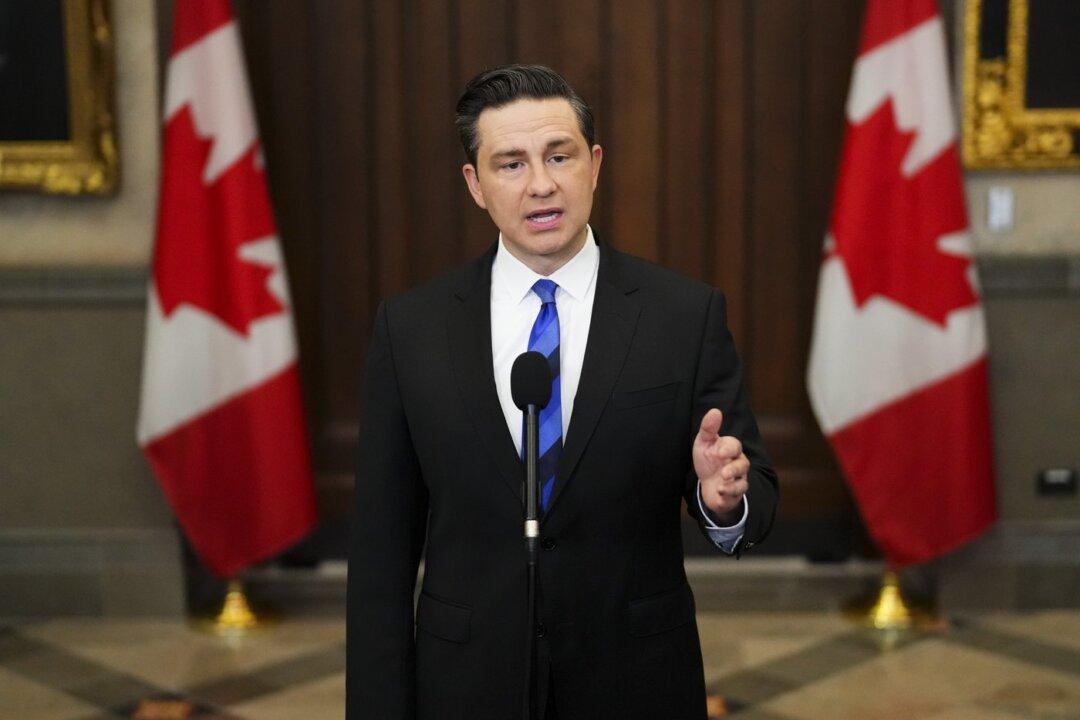Conservative Leader Pierre Poilievre says Prime Minister Justin Trudeau’s decision to put a three-year pause on the carbon tax on heating oil is a response to poor polling numbers for the Liberals.
“What caused Justin Trudeau to freak out yesterday and hold a sudden press conference to announce that he was going to pause the carbon tax on home heating oil?” Mr. Poilievre said during a press conference in St. John’s, Newfoundland and Labrador, on Oct. 27.





